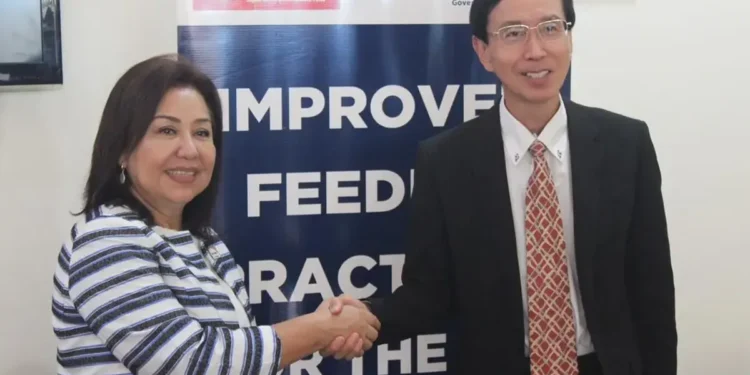Malnutrition remains a significant challenge in many developing countries, often leading to severe health consequences for children and pregnant women.
To address this issue in selected communities across Ghana, World Vision Ghana has implemented the Improved Feeding for the First 1000 Days project.
The project focused on providing indigenous communities in the Kassena-Nankana West, Kintampo South, and Sekyere East Districts with new skills and knowledge in supplementary feeding, child healthcare, and hygiene practices.
In these communities, traditional agricultural practices have helped sustain household food security and livelihoods for decades. However, malnutrition and anaemia in pregnancy caused by insufficient intake of micro and macronutrients were still prevalent.
World Vision Ghana introduced innovative approaches to address these challenges, including advocating for the consumption of orange-fleshed sweet potatoes, poultry products, Koko Plus, and green leafy vegetables.
The project also focused on improving the quality of health service delivery in all partner health centres and household feeding practices. The goal was to increase the intake of macronutrients by children and pregnant mothers, resulting in better child growth and birth outcomes.
Additionally, the IFP project provided certain medical equipment and capacity building for health staff, boosting their efficiency and enhancing the delivery of health services to babies and pregnant women.
One mother, Akurugu Evelyn, shared her experience, saying, “Thanks to the new knowledge on nutrition gained from participating in World Vision's Improved Feeding for the First 1000 Days Project, anytime I went to the clinic, it was for a routine child welfare clinic exercise: weighing and sensitization on pregnancy, baby healthcare, and hygiene. I did not experience anaemia, and my delivery was safer too.”
The IFP project also achieved a significant change in men's participation in child healthcare and pregnancy management. As Awuni James noted, “I left child healthcare to my wife solely previously. That has since changed because of the orientation I received from World Vision. Now I support my wife to manage our children's health, hygiene, and education. I take our child for weighing, and I am not ashamed of it any longer.”
Through radio campaigns, the IFP project reached out to more than 11,000 women and men with nutrition and child health messages, resulting in increased antenatal care attendance rates by pregnant women, promoted exclusive breastfeeding practices, and improved household feeding practices in the project communities.
Overall, the Improved Feeding for the First 1000 Days project has significantly improved the intake of nutritional supplements among children aged 6–23 months, improved the quality of child healthcare delivery, and contributed to better nutrition practices, leading to better child health and birth outcomes.
The project is funded by the Japan Social Development Center through the World Bank.



















